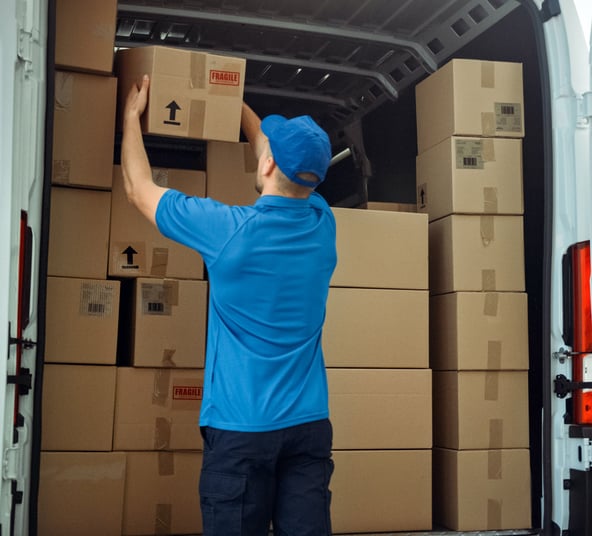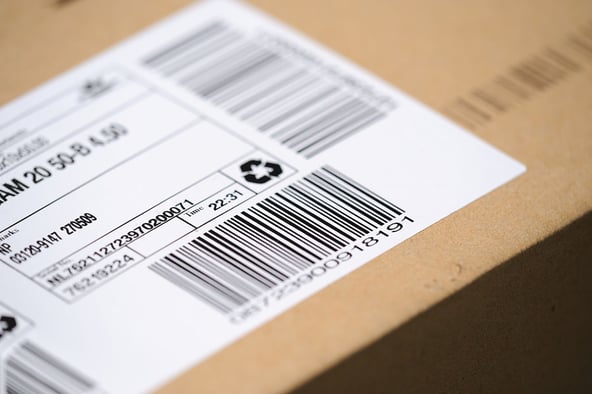As online retail grows, so do global CO2 emissions generated by the manufacturing, ordering, transportation, and delivery of goods – and the return transport. The increasing number of online purchases has created a higher number of returns and resulting CO2 emissions. However, online retailers and the logistics sector can help reduce the negative impact of returns by incorporating a sustainable reverse logistics strategy that uses efficient transportation methods, convenient return locations, and reducing paper waste.
Returns management: sustainability urgently needed
Online retail has been booming globally – and not only since coronavirus emerged. However, with more parcels being delivered, the effort involved in returns management also increases. If the goods delivered don’t meet customer expectations or arrive incomplete or with defects, the returns process begins, and therefore carbon emissions will ensue.
In addition to finding ways for more sustainable last mile delivery, optimizing the returns process is thus a crucial part of implementing sustainable, green logistics.

How to optimize return logistics for more sustainability
One of the most important ways to increase the sustainability of returns management is by improving transport efficiency. The most important criteria are:
- Strategically locating returns-processing facilities saves transport costs and significantly reduces CO2 emissions.
-
If managing returns with an external service provider or returns processor, opt for local providers to reduce transportation distances, thus reducing carbon emissions.
-
Consider using Third Party Logistics (3PL) warehousing in high-volume countries. Returned stock can be accepted back into the online inventory for that specific country and resold without the need for further international shipping.
Consolidate returns to reduce carbon emissions
One of the highest costs with international orders, both financially and environmentally, comes from shipping packages individually. One of the best ways to reduce the carbon footprint of the returns process is to avoid individual returns with a solution that holds multiple return orders for a period of time before being shipped back together. Grouping items from the same brand or heading to the same destination also reduces carbon emissions.

Use a return portal rather than pre-printed return labels
Online shops offering a return portal play an increasingly important role in making the returns process sustainable, convenient, and customer-centric. Especially as a return portal enables paper waste reduction, physical return labels are no longer necessary to include inside packages as customers can download a return label as needed online.
A recent YouGov study of the preferences of online shoppers in nine European countries showed that customers prefer paperless returns and would rather download the return label online than use the preprinted version provided in the parcel. The results were clear: 72% of all respondents consider the downloadable return label or return form to be “important” or “very important."
Efficient returns management through local networks
Think globally, act locally? This statement also rings true when it comes to sustainable returns management. Having a local network of freight forwarders, warehouses, and redistribution centers, such as drop-off points and storage facilities, can help ensure that returns reach the various stations earlier and more sustainably.
Shorter transport distances cut time and enable goods to be resold and reshipped quickly, plus they don’t have to be stored for as long, saving storage capacity and resources.
Advantages of a local network for sustainable returns:
-
Local drop-off points allow customers to return goods conveniently and preferably on foot – ideally, on their usual route to the store or work.
-
More local return points lead to greater convenience and reduce the need to drive to a returns point, thus saving carbon emissions at the first mile.
- Shorter routes lead to more convenience for customers
-
Faster returns processes enable shorter lead times and more immediate refunds, thus boosting customer satisfaction
Seven Senders offers shippers access to more than 100 last mile carriers to help implement a smarter shipping process. Our one-stop solution delivery platform covers all shipping needs, including seamless returns management. With the support of our Return Portal customers can create a return label in just a few clicks, and retailers can send proactive, automated notifications on the status of returns.
Read more about our Return Portal and why a good returns process is necessary for an optimal customer experience.